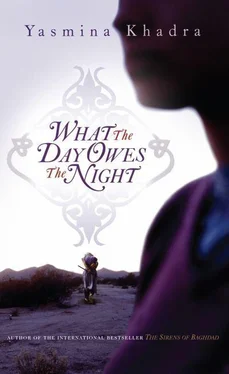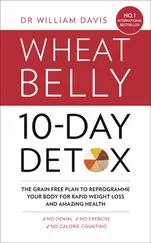‘You don’t owe me anything, Jelloul.’
‘That’s kind of you, but I want to be in your debt. I’ve never forgotten the day you gave me money and took me back to my village on your bicycle. For you, I suppose, it meant nothing; for me it was a revelation: I discovered that the Arab, the good Arab, the noble, generous Arab was not a mythical figure, nor was he what the colonist had made him . . . I’m not educated, I don’t have the words to explain what I felt, but it changed my life.’
He caught me by the arm.
‘Come with me.’
He led me to a building lined with metal doors, which I realised were jail cells. He slipped a key into one of the doors, shot back the lock and said:
‘He was a ferocious militant in the OAS and implicated in dozens of terrorist attacks. I had to move heaven and earth to stop him being executed. I leave him to you. This way I will have paid my debt . . . Go on, open the door and tell him he’s a free man, that he can go anywhere he likes, anywhere but my country, he’s not welcome here.’
He saluted me, turned on his heel and went back to his office.
I didn’t know what he was referring to. I reached out my hand, turned the handle and slowly opened the door. The hinges creaked. Daylight streamed into the windowless cell and a wave of heat flooded out. There was a shadow huddled in a corner; dazzled at first, he brought his hand up to shield his eyes.
‘Get out of here,’ roared a guard I had not noticed standing next to me.
The prisoner moved with difficulty, leaning against the wall to get to his feet. He had trouble standing. As he walked towards the door, my heart leapt in my chest. It was Chris – Jean-Christophe Lamy, or what was left of him. He was a broken man, scrawny and shivering, wearing a filthy torn shirt, a tattered pair of trousers with the fly undone and shoes with no laces. His face was pale, gaunt and unshaven, he smelled of sweat and urine, his lips were hidden by a crust of dried spittle. He gave me a black look, surprised to see me here to witness the state to which he had been reduced. He tried to lift his head but was too exhausted. The guard grabbed him by the scruff of the neck and dragged him from the cell.
‘Leave him alone,’ I told him.
Jean-Christophe looked me up and down.
‘I didn’t ask you for anything,’ he said.
As he limped away towards the exit of the barracks, I couldn’t help but remember all the things we had shared, the memories of our youthful innocence, and a sudden wave of sadness came over me. I watched him shamble away, stooped and stumbling, and as he went, a whole life went with him. I realised that the reason the stories my mother had told me long ago had seemed unsatisfying was because they ended with the era Jean-Christophe had chosen to ally himself to – an era that now shuffled away with him towards some uncertain destiny.
I walked through the teeming streets, through the singing and the shouting, beneath the fluttering green and white flags as the trams clanged and clattered past. The next day, 5 July, Algeria would have an identity card, a symbol, a national anthem and a thousand other things still to devise. On the balconies, women whooped and wept tears of joy. Children danced in the squares, climbing over monuments and fountains, up lamp posts and on to car roofs. Their cries drowned out the fanfares and the tumult, the sirens and the chatter; they were already tomorrow.
I went down to the port to watch the exodus. The quays were crowded with passengers, luggage and waving handkerchiefs. Steamers waiting to lift anchor groaned beneath the weight of the sorrow of those leaving. Families searched for each other in the crowds, children wept, old men slept on their suitcases, praying in their sleep that they might never wake. Leaning on a railing overlooking the port, I thought of Émilie, who might well be here in this crowd of helpless souls jostling before the door to the unknown. She might already have left; she might be dead; she might still be packing her cases in one of the buildings I could see around me. I stayed at the port until the dawn broke, leaning over the railing, unable to reconcile myself to the idea that something that had never really begun was truly over.
4. Aix-en-Provence (Present Day)
‘ MONSIEUR. . .’
The angelic face of the air hostess smiles at me. Why is she smiling at me? Where am I? I must have dozed off. After a moment of hesitation I realise I am on a plane, white as an operating theatre, and the clouds I can see flashing past the window are not some glimpse of the hereafter. And it all comes back to me: Émilie is dead. She passed away on Monday in Aix-en-Provence hospital.Fabrice Scamaroni had phoned a week ago to let me know.
‘Could you bring your seat back up, monsieur, we’re about to land . . .’
The gentle voice of the flight attendant echoes dully in my mind. What seat? My neighbour, a teenage boy in a hooded top emblazoned with the colours of the Algerian football team, points to a button on the armrest and helps me adjust my seat.
‘Thank you,’ I say.
‘No problem, Grandad. You live in Marseille?’
‘No.’
‘My cousin’s picking me up at the airport. We can give you a lift somewhere If you like.’
‘That’s very kind, but there’s no need. There’s someone meeting me.’
I look at his head, bizarrely shaved to conform to some curious fashion, with a single tuft of hair at the front held upright by a thick layer of gel.
‘You scared of flying?’ he asks me.
‘Not particularly.’
‘My dad can’t even watch a plane land; he puts his hands over his eyes.’
‘That bad, really?’
‘You don’t know my dad. We live on the ninth floor of Jean de la Fontaine, the housing estate in Gambetta in Oran, you know it? Those huge tower blocks facing away from the sea. Anyway, nine times out of ten my dad won’t even take the lift – even though he’s pretty old, he’s, like, fifty-eight and he’s had prostate surgery.’
‘Fifty-eight isn’t all that old.’
‘Yeah, I know, but where I come from we don’t say dad, we say the old man . . . How old are you, Grandad?’
‘I was born so long ago I’ve forgotten.’
The plane is swallowed up by thick cloud, there is a flurry of turbulence and it goes into a nosedive. The boy next to me pats the back of my hand, which is clutching the armrest:
‘Don’t worry, Grandad, it’s like we’ve come off the motorway on to a back road. It’ll be fine in a minute. Flying is the safest way to travel.’
I look out of the window, watch the fleecy clouds become an avalanche, then mist, thinning out only to reappear thicker than ever, then disappear again. The blue sky returns, scuffed with frayed streaks of white. Why have I come here? I hear my uncle’s voice above the roar of the engines: If you want your life to be a small part of eternity, to be lucid even in the heart of madness, love . . . Love with all your strength, love as though it is all you know how to do, love enough to make the gods themselves jealous . . . for it is in love that all ugliness reveals its beauty.These were my uncle’s last words, the words he said to me on his deathbed in Río Salado. Even now, half a century later, his cracked voice still rings in my head like a prophecy: A man who passes over the great love of his life will only be as old as his regrets, and all the sighing in the world will not be enough to soothe his soul.Is it to disprove this truth or to face it that I have come so far? The plane wheels and turns and suddenly, out of nowhere, I see France. My heart stutters, and an invisible hand closes around my throat. It is so intense that I can feel my fingers ripping through the fabric of the armrest. Now I see rocky mountain peaks reflecting the sunlight, perpetual, implacable sentinels that keep watch over the shore, indifferent to the raging sea that dashes itself against the cliffs at their feet. Then, as the plane wheels, Marseille . . . like a vestal virgin lazing in the sun. Sprawled over the hillsides, radiant, dazzling, her navel bared, hip exposed to the four winds, she pretends to sleep, pretends not to notice the murmur of the waves and the whispers that drift in from the hinterland. Marseille, the legendary city, the land of titans, the landing place of the gods of Olympus, the crossroads of lost horizons, manifold because she is boundless in her generosity; Marseille, my last battlefield, where I finally had to lay down my arms, crushed by my inability to accept a challenge, to be worthy of my own happiness.
Читать дальше












